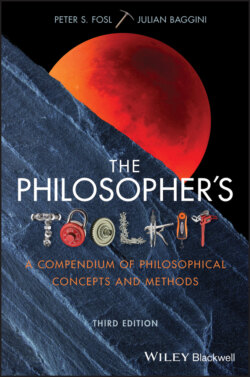Читать книгу The Philosopher's Toolkit - Julian Baggini, Julian Baggini - Страница 38
Soundness
ОглавлениеTo say an argument is valid, then, is not to say that its conclusion must be accepted as true. The conclusion is definitely established as true only if both of two conditions are met: (1) the argument is valid and (2) the premises are true. This combination of valid argument plus true premises (and therefore a true conclusion) is called approvingly a sound argument. Calling it sound is the highest endorsement one can give an argument. If you accept an argument as sound, you are really saying that one must accept its conclusion. The idea of soundness can even itself be formulated as an especially instructive valid, deductive argument:
1 If the premises of the argument are true, then the conclusion must also be true (i.e. the argument is valid).
2 The premises of the argument are true.
3 Therefore, the conclusion of the argument must also be true.
For a deductive argument to pass muster, it must be valid. But being valid is by itself not sufficient to make it a sound argument. A sound argument must not only be valid; it must have true premises, as well. It is, strictly speaking, only sound arguments whose conclusions we must accept.
